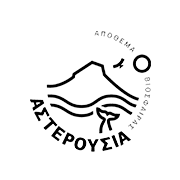Today, UNESCO and the abrdn Charitable Foundation (aCF) announced the launch of the project titled “Promoting sustainable development through UNESCO’s programmes and sites”. The event was hosted by UNESCO at its Regional Bureau for Science and Culture in Europe based in Venice, Italy.
Running over 3 years, the project focuses on promoting a more sustainable and climate-neutral Europe by working through research and education, with the goal to develop innovative solutions to environmental and climate change challenges in selected UNESCO sites, 5 per year.
The project contributes to the Sustainable Development Goals, notably SDG 6 (Clean water and sanitation), SDG 13 (Climate Action), SDG 14 (Life below Water) and SDG 15 (Life on land).
This year, following a comprehensive selection process, UNESCO and the aCF selected the first set of 5 sites:
Ohrid-Prespa Transboundary Biosphere Reserve and Natural and Cultural Heritage of the Ohrid region in Albania/North Macedonia provides refuge for numerous freshwater species of flora and fauna. Innovative ways of mapping water-related ecosystems will be promoted through the “St. Naum springs – Biological and Ecosystem services Inventory (SN-BESI)” project.
Asterousia Mountain Range Biosphere Reserve in Greece hosts 50% of all animal and plant species recorded in Crete. Marine litter data through community-based research will be generated by the project “Monitoring marine litter and generating fit-for-purpose data through a participatory science approach in Asterousia Biosphere Reserve”.
Tuscan Islands Biosphere Reserve in Italy encompasses a wide range of geological, geomorphological and biological diversity. The sustainable use of water and insular ecosystems, notably through remote sensing techniques, will be explored in the project “Pianosa Island: hydrological processes and water resources sustainability in the climate-changing Mediterranean”.
Kozjansko and Obsotelje Biosphere Reserve in Slovenia is one of the country’s most important nature conservation areas regarding biotic diversity. The biodiversity of dry grasslands will be monitored through the project “Dry meadows and Kozjansko and Obsotelje biosphere reserve”, and a genetic seed bank will be created.
Brighton and Lewes Downs Biosphere Reserve in the United Kingdom comprises 3 distinct but interrelated environments – rural, coastal & marine and urban. Sustainable Drainage Systems (SuDS) as a key tool for managing groundwater in urban areas will be promoted in the project “Sustainable management of urban aquifers.”
Representatives from all 5 sites, UNESCO and abrdn met and discussed how the projects would be developed on the ground and how the results of the projects could be scaled up globally.
UNESCO will work with the selected sites to ensure the results fit within the priority areas of its scientific programmes – MAB, IHP and IOC.
The projects are expected to promote research related to UNESCO’s science intergovernmental programmes: biodiversity, nature-based solutions, ecosystem services, water, the ocean, and the climate; but also, Education for Sustainable Development, water education and Ocean Literacy, and climate change education working with schools within the sites; and, finally, innovative ‘green’ and ‘blue’ solutions for sustainable development, climate change mitigation and adaptation involving key stakeholders such as local businesses, NGOs and youth.
Ana Luiza M. Thompson-Flores, Officer-in-Charge of the UNESCO Regional Bureau for Science and Culture in Europe, said: “I am delighted to witness today the start of this innovative public-private partnership implemented in UNESCO’s designated sites. I am sure that the fantastic projects relating to biodiversity, water and the ocean we have heard about today will have a great impact on the sustainability of these sites, which we see as pilots for the implementation of the SDGs.”
Amanda Young, Chief Sustainability Officer, abrdn, added: “We’re thrilled to be supporting such important projects, all of which are driving the promotion of a more sustainable and climate neutral world. Tying the research being carried out at each site to themes aligned with the SDGs is important. This multilateral approach will be crucial to ensure equitable development and environmental sustainability – themes that are being brought into sharp focus by spiralling impacts of climate change.”
If you want to learn more about UNESCO press here.

